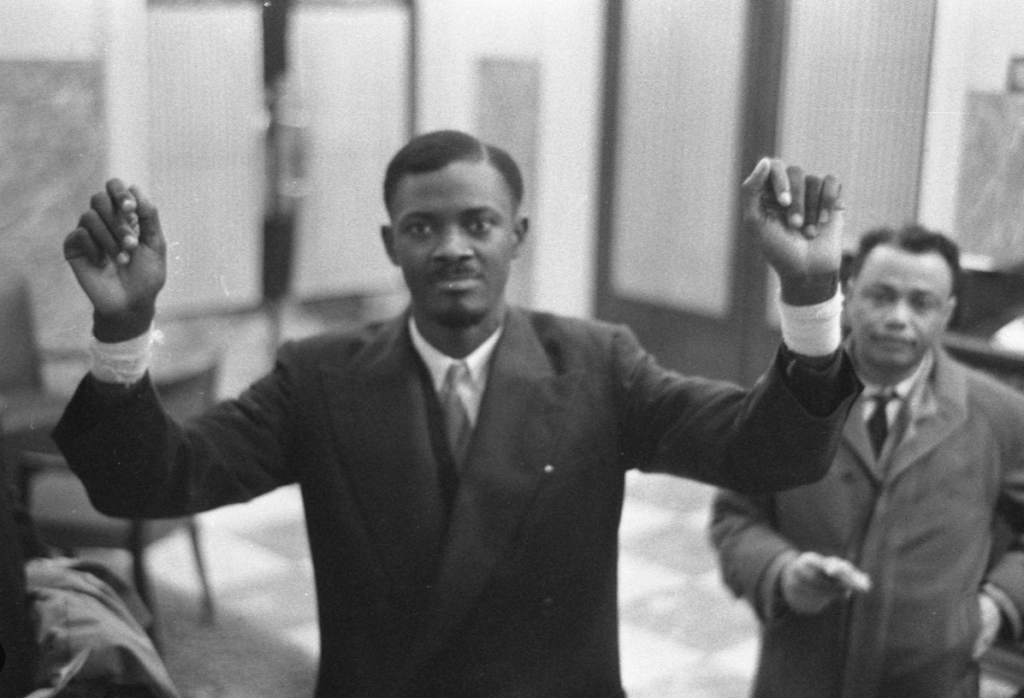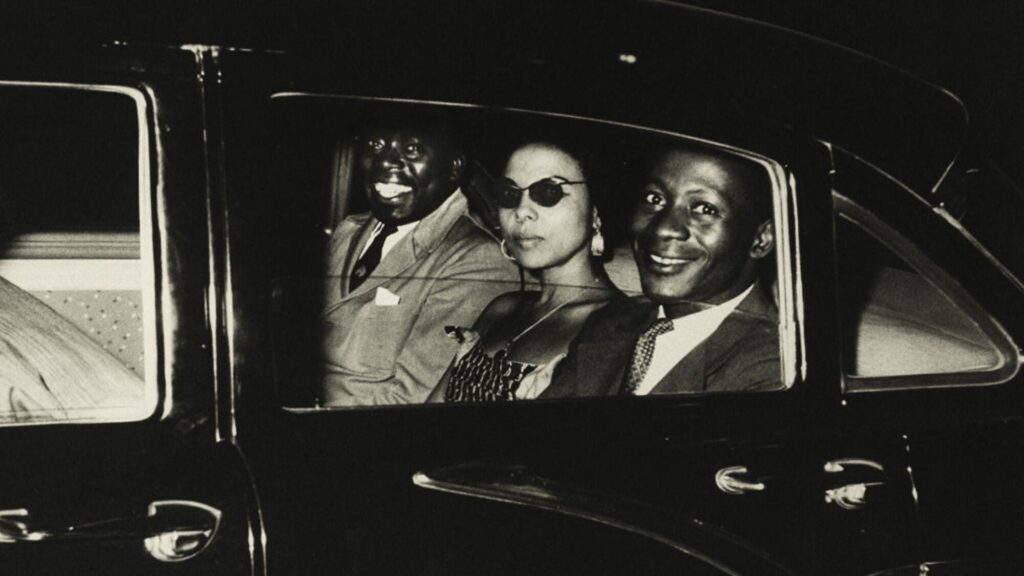In “Soundtrack to a Coup d’Etat,” Belgian filmmaker Johan Grimonprez quite literally orchestrates a lyrical documentary that dives deep into the confluence of jazz, decolonization, and the Cold War, with a particular focus on the tumultuous history of the Democratic Republic of the Congo (DRC). Premiering at the 2024 Sundance Film Festival, this film not only marks a significant milestone in Grimonprez’s career, winning the festival’s World Cinema Documentary Special Jury Award for Cinematic Innovation, but also stands as a testament to the power of historical narrative interwoven with cultural expression.
The film is set against the backdrop of Congo’s struggle for independence and the broader African decolonization movement of the late 1950s and early 1960s. This period marked a significant shift in global relations, with newly independent African nations emerging on the world stage.
At its core, “Soundtrack to a Coup d’Etat” is an exploration of the political earthquake that shook the foundations of colonial power structures in the mid-20th century, spotlighting the Congo, emphasizing how superpower rivalries exacerbated internal conflicts and played a role in the destabilization of the newly independent state.

A central event in the film is the murder of Patrice Lumumba, Congo’s first democratically elected Prime Minister, which symbolizes the tragic consequences of international interference in Africa’s decolonization process.
The filmmaker’s stated interest in the subject was partly sparked by the infamous shoe-banging incident by Nikita Khrushchev at the UN in 1960, which he eventually connected to Belgium’s political actions during decolonization. This realization led him to investigate the complexities of the West’s dealings with the independence movement, marking what he describes as “ground zero” of Western response strategies to African decolonization.
However, “Soundtrack to a Coup d’Etat” is far from a conventional historical recount; it is a vibrant tapestry of music, politics, and personal stories that challenge and engage the viewer on multiple levels.
The documentary-as-mixtape places significant emphasis on music, particularly jazz – which might initially seem incongruous – as a central protagonist alongside the political figures and events it depicts. Particularly, the music of Max Roach and Abbey Lincoln is portrayed as deeply inspired by and intertwined with African independence movements. Here, jazz is both a symbol of resistance and a tool of diplomacy.

The film also highlights the US State Department’s paradoxical use of jazz ambassadors like Louis Armstrong, who even considered renouncing his US citizenship after realizing the political implications, juxtaposed against the genre’s roots in African American struggles for freedom and equality.
Furthermore, stylistically, Grimonprez employs a distinctive approach that mirrors the improvisational and expressive qualities of jazz itself. The film’s structure, moving swiftly from one musician, one piece of music, and one related pivotal historical moment to another, punctuated by textual intertitles, creates a dynamic and engaging narrative that feels surprisingly breezy for its nearly 1/2-hour runtime. This pacing, combined with the polyphonic narrative that incorporates a wide array of voices and perspectives, offers a multifaceted view of history that is both informative and deeply moving.
The documentary’s thematic richness is evident in its treatment of the DRC’s pivotal role in supplying uranium for the Manhattan Project, a lesser-known historical fact that underscores the global interconnectedness of the narrative. This backdrop provides a broader context for understanding the geopolitical significance of the Congo during the Cold War and the profound implications of Lumumba’s assassination, reframed within a narrative that transcends borders and epochs.

Pairing “Soundtrack to a Coup d’Etat” with Göran Olsson’s “The Black Power Mixtape 1967-1975” (2011) would make a compelling double feature that spans continents and decades, weaving together the themes of resistance, cultural expression, and political activism. They may focus on different historical contexts and movements, but they share a thematic interest in the intersection of music, politics, and social struggle, and a structural employ of archival footage and polyphonic narratives to offer a multifaceted view of their subjects.
“Soundtrack to a Coup d’Etat” invites a re-examination of how we understand and engage with the past, with music, and the struggle for freedom in new and profound ways. By intertwining the histories of jazz, decolonization, and the Cold War, Grimonprez not only sheds light on a pivotal chapter in global history but also celebrates the resilience and creativity of those who lived through these tumultuous times.
“Soundtrack to a Coup d’Etat” makes its world premiere at the 2024 Sundance Film Festival in the World Cinema Documentary Competition.